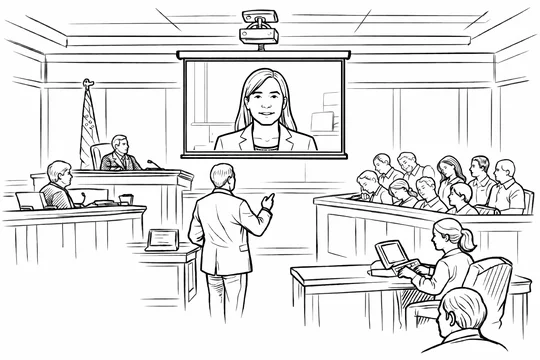
When it comes to IP cases in federal court, dealing with subpoenas can be a bit out of the ordinary.
It's not that they never come up. It's normal to have a couple of subpoenas per side in cases that make it to the close of fact discovery (e.g., for prior art, third party inventors, etc.), sometimes more. But not all cases make it to that stage, and many cases don't involve any subpoenas at all.
It also doesn't take much manpower to fill out a form subpoena. It's a task often given to newer associates or paralegals. More senior attorneys may not get involved in the service process at all, unless something goes wrong.
That said, it's easier than you might think for something to go wrong. The rules governing subpoenas are pretty archaic and weird compared to the rest of the federal rules. FRCP 45, for example, requires "tendering the fees for 1 day's attendance and the mileage allowed by law" when serving a subpoena.
Often this payment is handled by a process server. But, sometimes, they don't handle the payment. What happens then?
The subpoena may be subject to a motion to quash, which the Court will probably grant. That's what happened today in H2E Americas, LLC v. Rymark, Inc., C.A. No. 25-mc-439-GBW (D. Del.), before Judge Williams. The Court held noted that, in the Third Circuit, forgetting the pay the attendance fee is not a "mere technicality"—it can be valid grounds for a motion to quash:
Respondents' service of the Subpoena failed "to include the required witness fee." . . . This failure is not a "mere technicalit[y]" that can be simply cured by subsequently dispersing a check in the mail. . . .
"There are undoubtedly worthy policy considerations at odds here: applying the plain language of [Rule 45] coupled with the assurance that a court order compelling action on the part of a non-party be assured receipt [of witness fees] versus the liberal interpretation of discovery in litigation to promote the truth-seeking process along with the speedy and economical resolution of litigation." See Fiorentino v. Cabot Oil & Gas Corp., No. 09-cv-2284, 2012 U.S. Dist. LEXIS 194219, at *26 (M.D. Pa. Jan. 5, 2012). "Both are clearly valuable and laudable sets of principles, but ultimately [the Court] conclude[s] that the directives contained in the [Federal] Rules [of Civil Procedure] governing the orderly process of litigation," along with the Third Circuit's guidance in Foster, "must ca[rry] the day." See id.
For the foregoing reasons, the Court quashes the Subpoena.
H2E Americas, LLC v. Rymark, Inc., C.A. No. 25-mc-439-GBW, at 1-2 (D. Del. Nov. 19, 2025).
What About Service by E-mail?
These days, it's not common for a third party to agree to accept service of a subpoena by e-mail. What happens then?
In my experience, parties have sometimes treated "yes, I will accept service by e-mail" as "yes, I will accept service without payment of the fee." But I don't know that that would hold up if challenged (I imagine there may be some cases on this).
To me it seems safest to just, you know, pay the fee, or get a specific agreement that it's waived. It's only $40 per day, plus mileage—even less than the "paltry sum" of $50/day paid to jurors, Backertop Licensing LLC v. Canary Connect, Inc., C.A. No. 22-572-CFC, 2023 U.S. Dist. LEXIS 117690, at *16 (D. Del. July 10, 2023) (Connolly, J.), and far less than the cost of the hours you will spend litigating a motion to quash.
If you enjoyed this post, consider subscribing to receive free e-mail updates about new posts.



